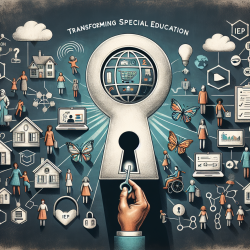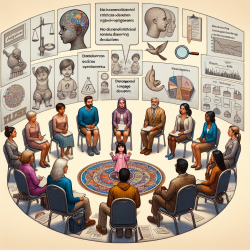Building a Thriving Community through Online Therapy
In the realm of special education, the importance of community cannot be overstated. It's a collaborative effort that brings together educators, therapists, parents, and funding agencies to create a supportive environment for children with special needs. One of the most transformative tools in this collective endeavor is online therapy. Let's explore how online therapy can foster a joyful and effective community for special education.
The Power of Data-Driven Decisions
As a PhD graduate in speech-language pathology, I am a firm believer in the power of data-driven decisions. In the context of special education, data is not just numbers; it is the story of a child's progress, challenges, and triumphs. Online therapy platforms like TinyEYE provide a wealth of data that can be harnessed to make informed decisions, ultimately leading to better outcomes for children.
How Online Therapy Enhances the IEP Process
The Individualized Education Program (IEP) is the cornerstone of special education. It is a personalized plan designed to meet the unique needs of each child. Online therapy plays a crucial role in enhancing the IEP process by offering:
- Flexibility: Online therapy sessions can be scheduled at convenient times, ensuring that children receive the support they need without disrupting their daily routines.
- Accessibility: Children in remote or underserved areas can access high-quality therapy services, leveling the playing field for all students.
- Data Collection: Online platforms automatically collect data on a child's progress, providing valuable insights for IEP meetings and adjustments.
Joyful Outcomes through Community Collaboration
When special education funding agencies invest in online therapy services, they are investing in the creation of a joyful and supportive community. This investment leads to:
- Improved Student Outcomes: With consistent access to therapy, students can achieve their goals and reach their full potential.
- Empowered Educators: Teachers can collaborate with therapists to implement effective strategies in the classroom.
- Engaged Parents: Parents can participate in their child's therapy sessions and receive guidance on how to support their child's development at home.
Conclusion: A Call to Action
In conclusion, online therapy is not just a service; it is a community-building tool that has the power to transform special education. By making data-driven decisions and fostering collaboration, we can create a joyful and effective environment for children with special needs. As special education funding agencies, your support is crucial in making this vision a reality. Together, we can unlock the full potential of every child.










